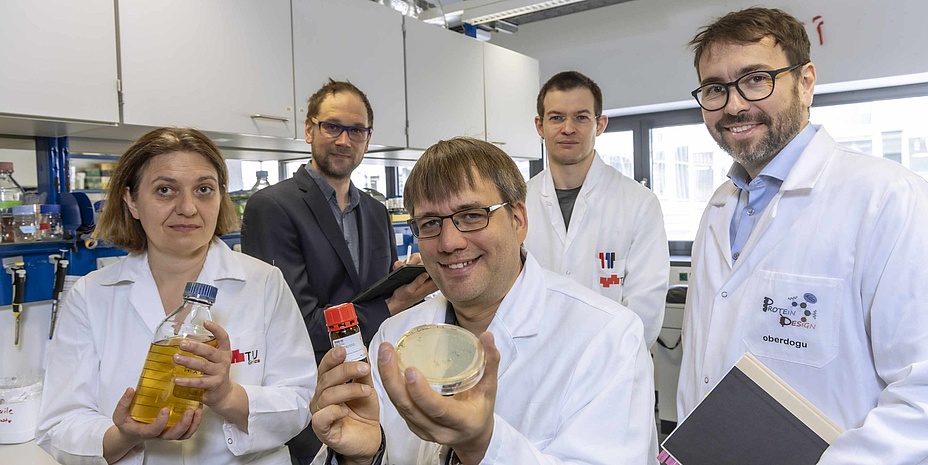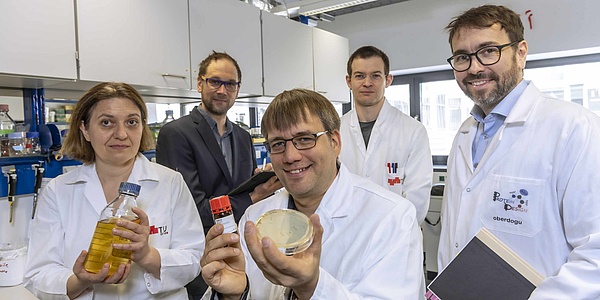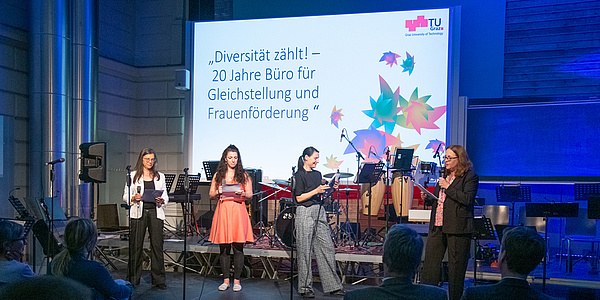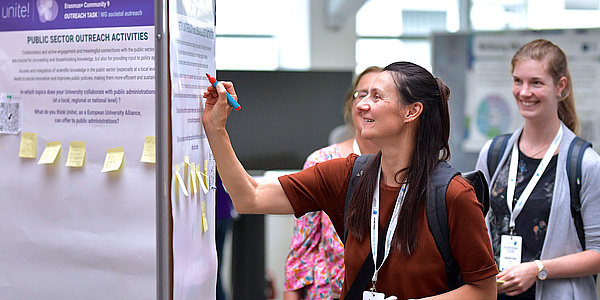Fields of Expertise – It Pays to be Part of Them

The five Fields of Expertise of Graz University of Technology (TU Graz) display the range of research at the University and are organised under the following headings: Advanced Materials Science; Human and Biotechnology; Information, Communication and Computing; Mobility and Production; and Sustainable Systems. At the same time, they connect research areas across the seven faculties of TU Graz and encourage collaborative thinking and interdisciplinary cooperation.
In order to support this big ʻweʼ, the FoE organise various exchange formats where researchers can meet, discuss and develop joint projects. The FoE regularly organise poster days, lab tours and colloquia. The latest events can be found on the relevant pages of the TU4U intranet.
In addition, the Fields of Expertise provide various funding schemes to financially support ground-breaking research:
Initial funding programmes
Initial funding programmes are intended to support young researchers in preparing project proposals for competitive programmes. TU Graz invites calls for this funding in a competitive process twice a year. There are also separate funding pots for projects involving TU Darmstadt, for projects in the field of climate neutrality, and for coordinators of 2-stage Horizon Europe calls. For projects with Unite! partner universities (Aalto University (Espoo/Helsinki), KTH Royal Institute of Technology (Stockholm), Wroclaw Tech, Technical University of Darmstadt, Grenoble INP-UGA, Politecnico di Torino, Universitat Politècnica de Catalunya, Universidade de Lisboa) or strategic partner universities of TU Graz (University of Strathclyde, Tongji University), an additional EUR 2,000 can be applied for to cover travel expenses. This is handled by the International Office – Welcome Center.
Lead projects
TU Graz promotes cross-faculty, top-level research that addresses the big questions of the future in an interdisciplinary way. Three lead projects are currently active: DigiBioTech; Porous Materials @ Work for Sustainability; and Mechanics, Modelling and Simulation of Aortic Dissections. The lead project Dependability in the Internet of Things has already been completed.
Joining a FoE is easy: Just send an email to foe@tugraz.at mentioning the desired Field of Expertise.
The Five Fields of Expertise at a glance
Advanced Materials Science
Researchers at the FoE AMS develop new materials and analyse existing ones down to their smallest components. The executive team consists of Karin Zojer, Gregor Trimmel and Sergio Amancio.
Human & Biotechnology
Research is centred on people, human technology and biotechnology. Gabriele Berg and Christian Baumgartner head the FoE.
Information, Communication & Computing
Researchers are facing up to the challenges of the information age – from computer security to AI. The executive team consists of Kay Uwe Römer, Michael Kerber and Yannic Maus.
Mobility & Production
The FoE MP conducts research into all aspects of mobility and the products we need in our daily private and working lives. It is led by Rudolf Pichler, Viktor Hacker and Peter Fischer.
Sustainable Systems
Dwindling resources, a growing population and the immense impact that our lives have on the environment make up the themes of Sustainable Systems. Sonja Wogrin, Urs Leonhard Hirschberg, Christof Hochenauer and Martin Fellendorf head the FoE.




